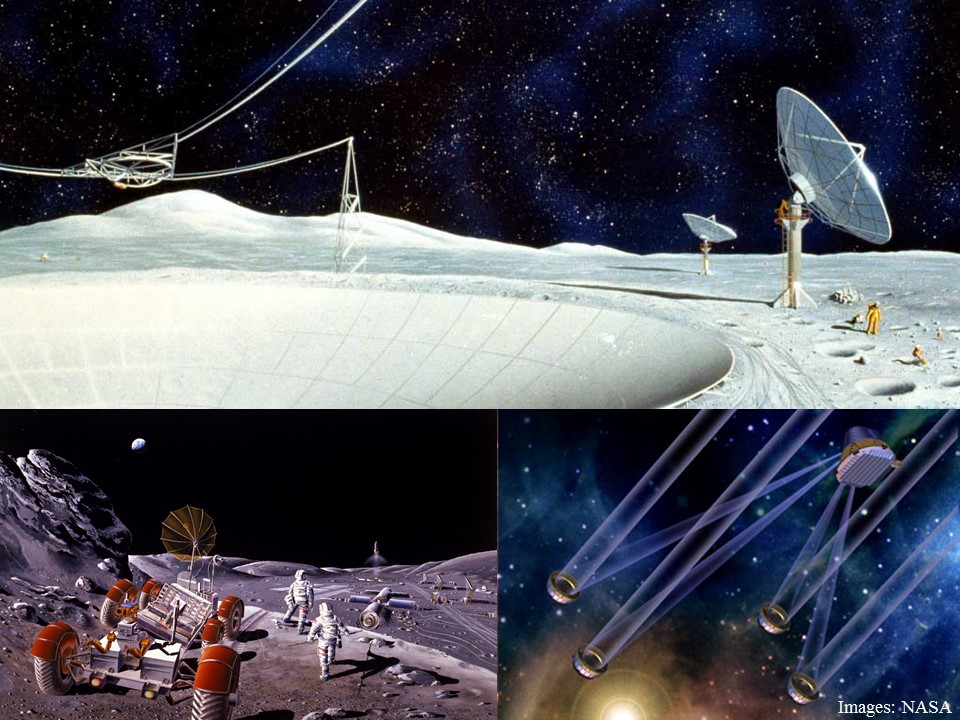The use of extraterrestrial resources to help facilitate space science and exploration

To be held on Friday 8 April 2016 at the Geological Society, Burlington House, Piccadilly, London.
Organised by Prof. Ian Crawford (Birkbeck College London), Dr Martin Elvis (Harvard Smithsonian Center for Astrophysics),
and Dr James Carpenter (European Space Agency).
Contact: i.crawford@bbk.ac.uk
To-date, all human economic activity has depended on the material and energy resources of a single planet, and it has long been recognized that developments in space exploration could in principle open our closed planetary economy to external resources of energy and raw materials. Recently, there has been renewed interest in these possibilities, with several private companies established with the stated aim of exploiting extraterrestrial resources. Space science and exploration are among the potential beneficiaries of space resources because they may permit the construction and operation of scientific facilities in space that would be unaffordable if all the required material and energy resources had to be lifted out of Earth's gravity. Examples may include the next generation of large space telescopes, sample return missions to the outer Solar System, and human research stations on the Moon and Mars. This meeting will explore these issues, and will provide an opportunity for space scientists and emerging space industrialists to discuss mutually advantageous possibilities.
| 09:30 | COFFEE | |||||
| 10:00 | Ian Crawford | Birlbeck College London | Introduction/Welcome | |||
| 10:05 | Martin Elvis | Harvard Smithsonian Center for Astrophysics | What can space resources do for astronomy? | |||
| 10:30 | Paul Spudis | Lunar and Planetary Institute, Houston | The Moon as an enabling asset for spaceflight | |||
| 10:55 | Olivier de Weck | Massachusetts Institute Institute of Technology | Detour to the Moon: How lunar resources can save up to 68% of launch mass to Mars | |||
| 11:20 | Phil Metzger | University of Central Florida | Using ice for planetary surface propulsion: A strategic technology to initiate space industry | |||
| 11:45 | Jim Keravala | Shackleton Energy | Accelerating space science and exploration in partnership with commercial resource utilisation | |||
| 12:10 | James Carpenter | European Space Agency | Lunar resources: Exploration enabling science | |||
| 12:25 | LUNCH | |||||
| 13:30 | Simeon Barber | The Open University | PROSPECT: ESA's lunar resource prospecting tool as a precursor to lunar science and exploration | |||
| 13:45 | Vibha Srivastava | The Open University | Microwave processing of lunar soil for supporting longer-term exploration missions on the Moon | |||
| 14:00 | Manuel Grande | Aberystwyth University | Asteroid mining: What's in it for planetary science? | |||
| 14:15 | Colin Snodgrass | The Open University | Searching for water in asteroids | |||
| 14:30 | Colin McInnes | Glasgow University | Near Earth asteroid capture dynamics, material sorting and utilisation for large on-orbit reflectors | |||
| 14:45 | Michael Johnson | Imperial College London/PocketSpacecraft.com | Replenishing prepositioned spacecraft-on-demand printers | |||
| 15:00 | Ian Crawford | Birkbeck College London | The long-term scientific benefits of space infrastructure | |||
| 15:15 | DISCUSSION | |||||
| 15:30 | END |
NB. Attendance at RAS Specialist Discussion meetings is free for RAS Fellows. Non-members will need to register at the door for a fee of £15 (£5 for students). Further details are available at the RAS Meeting website.